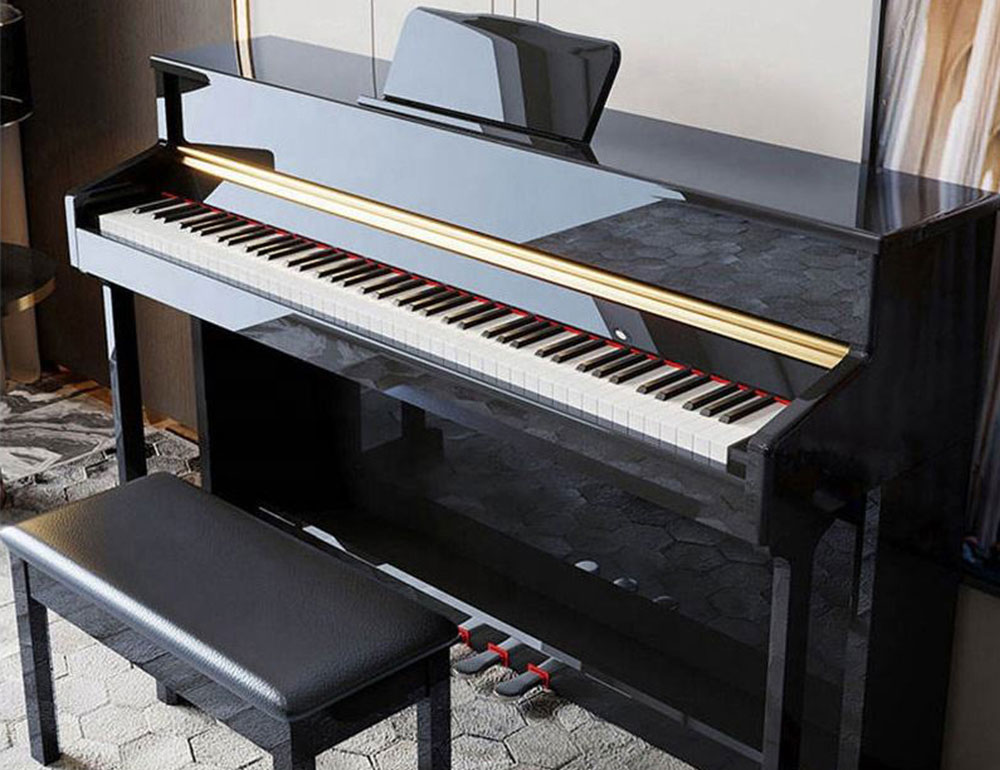In the modern age of music learning, digital pianos have emerged as a popular choice among beginners. With advancements in technology, these instruments have become more sophisticated, offering features that cater to both novice and experienced players. This article delves into why digital pianos are an excellent choice for beginners, highlighting their advantages, key features, and considerations for selecting the right model.
Advantages of Digital Pianos for Beginners
Affordability
One of the primary reasons digital pianos are suitable for beginners is their affordability. Unlike traditional acoustic pianos, which can be prohibitively expensive, digital pianos are available in a wide range of prices. This accessibility makes it easier for beginners to start their musical journey without a significant financial investment.
Space-Saving Design
Digital pianos are designed to be compact and portable, making them ideal for those with limited space. Unlike their acoustic counterparts, which can be large and cumbersome, digital pianos can fit comfortably in small apartments or homes. Many models are also lightweight and easy to move, allowing for flexibility in practice locations.
Volume Control and Headphone Compatibility
Learning to play the piano can be a noisy process, especially for beginners. Digital pianos come equipped with volume control features, allowing players to adjust the sound to a comfortable level. Additionally, the ability to use headphones means that practice sessions can be conducted without disturbing others, making it a convenient option for shared living spaces.
Variety of Sounds and Features
Digital pianos offer a wide array of sounds and features that can enhance the learning experience. From different piano tones to other instrument sounds like strings and organs, these features allow beginners to explore various musical styles. Many digital pianos also include built-in metronomes, recording capabilities, and learning modes that can aid in practice and skill development.
Key Features to Look for in a Digital Piano
Weighted Keys
For beginners, it is crucial to choose a digital piano with weighted keys. This feature simulates the feel of an acoustic piano, providing the necessary resistance and touch sensitivity that helps develop proper finger strength and technique. There are various types of key actions, including semi-weighted, fully-weighted, and graded hammer action, each offering a different level of authenticity.
Polyphony
Polyphony refers to the number of notes a digital piano can produce simultaneously. For beginners, a minimum of 64-note polyphony is recommended, although higher polyphony counts (128 or more) provide a more realistic playing experience and prevent note dropouts, especially when using the sustain pedal or playing complex pieces.
Sound Quality
The sound quality of a digital piano is determined by the sampling technology and speakers used. High-quality digital pianos sample sounds from renowned acoustic pianos, providing a rich and authentic sound. Built-in speakers should be powerful enough to deliver clear and resonant audio, enhancing the overall playing experience.
Connectivity Options
Modern digital pianos often come with various connectivity options, such as USB, MIDI, and Bluetooth. These features allow beginners to connect their instruments to computers, tablets, and smartphones for access to online tutorials, music software, and interactive learning apps. This connectivity can significantly enhance the learning process by providing additional resources and tools.
Tips for Choosing the Right Digital Piano for Beginners
Determine Your Budget
Before purchasing a digital piano, it is essential to determine your budget. While it is possible to find decent entry-level models at a lower price, investing in a higher-quality instrument can provide better sound, feel, and features, ultimately enhancing the learning experience.
Consider Your Space
Assess the space where you plan to place the digital piano. Compact and portable models are ideal for small areas, while larger digital pianos with furniture-style cabinets can provide a more traditional look and feel if space permits.
Test Different Models
If possible, visit a music store to test different digital piano models. Pay attention to the key action, sound quality, and overall feel of the instrument. This hands-on experience can help you choose a piano that best suits your preferences and needs.
Read Reviews and Seek Recommendations
Reading reviews and seeking recommendations from teachers, friends, or online communities can provide valuable insights into the pros and cons of different digital piano models. This information can help you make an informed decision and avoid potential pitfalls.
Our company is a comprehensive enterprise ingratiating research and development, design, production, sales and service. We produce several kinds of electronic piano for all over the world.
If you want to know more details, add my
whatsapp: +86 17706062278. Gmail: anngood88day@gmail.com





